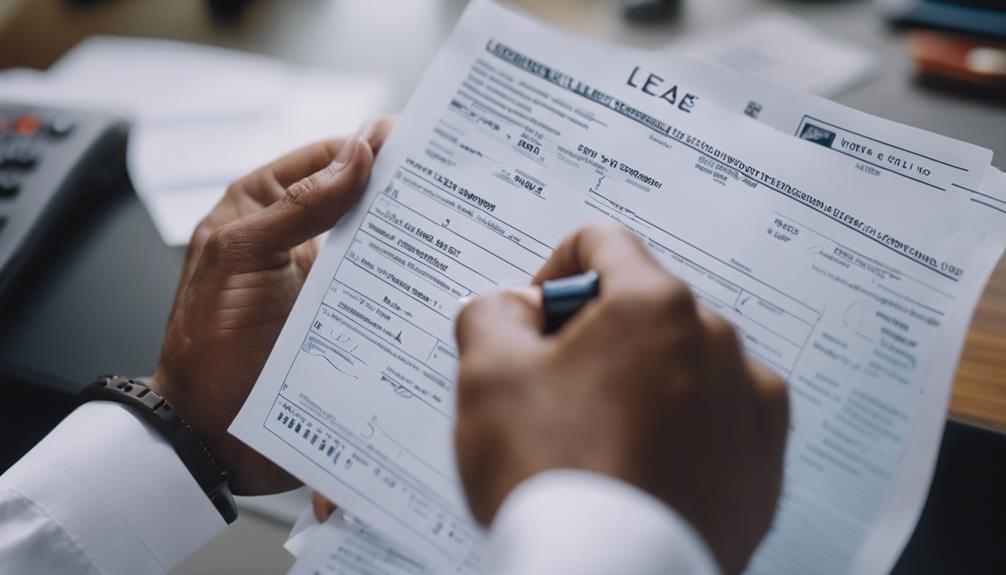In the context of emergency Medicaid eligibility, having seven crucial documents is key to swiftly gaining approval for urgent medical aid. The imperative documents include proof of identity such as a photo ID, income verification like tax returns, residency confirmation via utility bills, details on household composition, medical necessity documentation, proof of emergency need, and any additional supporting paperwork. These documents serve as a foundation for showing eligibility and expediting the application process for emergency Medicaid benefits.
Proof of Identity

Verification of identity is a crucial requirement when applying for emergency Medicaid eligibility. To prove one's identity, individuals typically need to provide photo identification such as a driver's license, passport, or state-issued ID card. This step is essential to ensure that the applicant is who they claim to be, preventing fraud and maintaining the integrity of the Medicaid program.
Photo identification serves as a reliable way to confirm an individual's identity quickly and accurately. It provides a visual means of identification that can be easily verified by the Medicaid eligibility staff.
In cases where the applicant does not possess a photo ID, alternative forms of identification may be accepted, such as a birth certificate or social security card, accompanied by additional documentation to establish identity.
Failure to provide adequate proof of identity can result in delays or denial of emergency Medicaid benefits. Therefore, it is crucial for applicants to gather the necessary documents and ensure that they meet the identity verification requirements to expedite the eligibility process.
Income Verification
How can applicants demonstrate their financial resources when applying for emergency Medicaid eligibility? Income verification is a crucial step in the application process. Applicants typically need to provide documentation such as tax returns, bank statements, and employment history to prove their income levels.
Tax returns offer a comprehensive overview of an individual's annual income, while bank statements can show regular income deposits and account balances. Employment history serves as additional evidence of consistent income sources.
In addition to income verification, asset disclosure is also essential. Applicants may need to disclose any assets they own, such as property, vehicles, or investments. This information helps Medicaid determine the applicant's overall financial situation and eligibility for assistance.
Residency Confirmation

Confirming residency status is a critical component in the process of applying for emergency Medicaid eligibility. Address verification is essential to prove legal status and ensure individuals meet the residency requirements. Providing documents such as utility bills or a lease agreement can serve as evidence of a stable residence within the state.
Address verification plays a vital role in establishing residency for Medicaid eligibility. Utility bills in the applicant's name at the current address demonstrate an ongoing connection to the state. Similarly, a lease agreement can confirm the individual's legal residence within the state boundaries.
Legal status is closely tied to residency confirmation. By presenting documentation that proves legal presence in the state, applicants strengthen their case for emergency Medicaid eligibility. Ensuring that all address verification documents are current and accurately reflect the individual's residence is crucial for a successful application process.
Household Composition Details
Understanding the composition of the household is a fundamental aspect of assessing eligibility for emergency Medicaid. When applying for emergency Medicaid, providing accurate household composition details is crucial. This includes information on all individuals residing in the household, their relationships, and their financial status.
Financial documentation plays a significant role in determining eligibility requirements based on the household's income and resources. The application process for emergency Medicaid often requires detailed information about each household member to ascertain eligibility criteria.
To qualify for emergency Medicaid, applicants must meet specific household composition criteria outlined by the state. This may include the number of dependents, marital status, and any other individuals living in the household. Ensuring the accuracy of household composition details is essential to avoid delays or potential issues in the application process.
Medical Necessity Documentation

Assessing eligibility for emergency Medicaid also involves the submission of comprehensive medical necessity documentation to support the applicant's healthcare needs. This documentation plays a crucial role in demonstrating the treatment justification for emergency care and the medical urgency of the situation.
Physician documentation is essential in this process as it provides detailed information regarding the individual's medical condition, the necessity of the treatment, and why it constitutes an emergency. Physician documentation should clearly outline the medical condition, including any relevant diagnoses and symptoms, as well as the proposed treatment plan.
The documentation should also emphasize the urgent nature of the care needed to address the condition effectively. By providing thorough and accurate medical necessity documentation, applicants can strengthen their case for emergency Medicaid eligibility and ensure that they receive the timely medical assistance they require.
Proof of Emergency
Establishing the exigency of the medical situation is pivotal in providing the required proof of emergency for emergency Medicaid eligibility. The first step in demonstrating the urgency of the medical condition is typically through hospital admission records. These records serve as concrete evidence that the individual required immediate medical attention, thus justifying the need for emergency Medicaid coverage.
Additionally, if the individual can provide documentation of a doctor's referral for urgent treatment, it further strengthens the case for emergency assistance.
In some cases, individuals facing financial hardship may find it challenging to cover the costs of medical treatment without Medicaid support. Proof of financial hardship can be submitted alongside hospital admission records and doctor's referrals to underscore the critical need for immediate Medicaid coverage.
Additional Supporting Documents

Supplementing hospital admission records and doctor's referrals, providing additional supporting documents can further bolster the case for emergency Medicaid eligibility. Supporting letters from healthcare providers detailing the necessity of immediate medical intervention can provide crucial insights into the urgency of the situation. These letters should include specific medical details and recommendations to support the application for emergency Medicaid coverage.
Financial statements demonstrating the applicant's inability to afford medical treatment without Medicaid assistance are vital supplementary documents. Such statements should clearly outline the individual's financial constraints and inability to cover the costs of healthcare services independently.
Moreover, testimonial evidence from witnesses who can attest to the emergency nature of the medical condition can offer additional credibility to the application. Legal affidavits signed by relevant parties affirming the urgency and critical nature of the medical situation can serve as compelling supporting documentation.
Conclusion
In conclusion, the adage 'better safe than sorry' rings true when preparing for emergency Medicaid eligibility.
By ensuring that all necessary documents are in order, individuals can navigate the application process smoothly and access the medical care they need in times of crisis.
Remember, preparation is key in securing assistance during unforeseen circumstances.